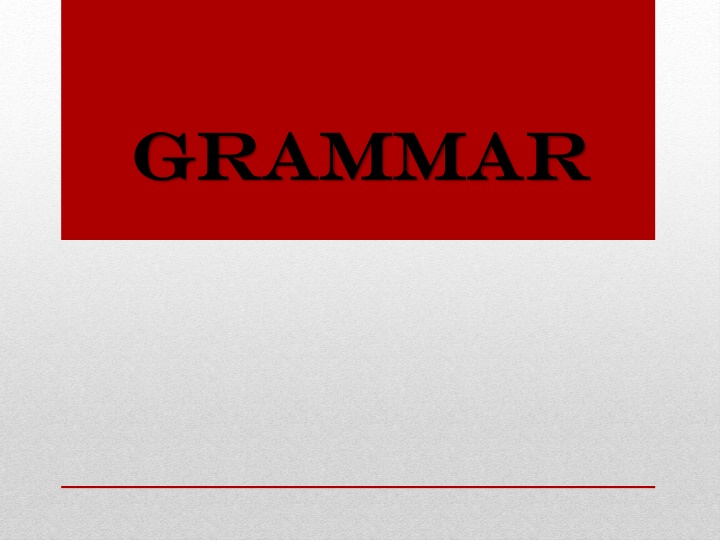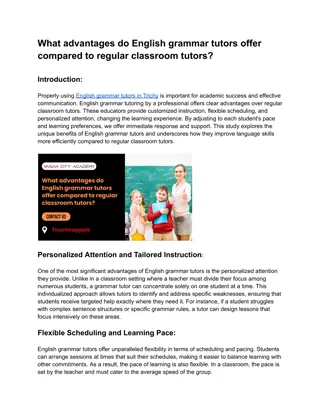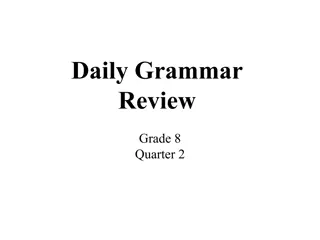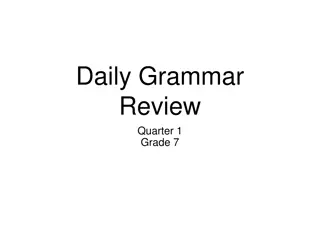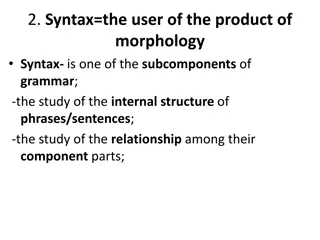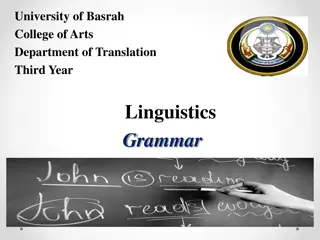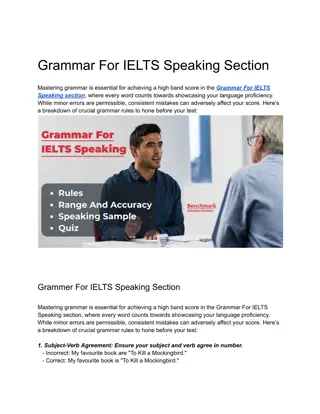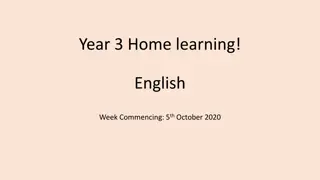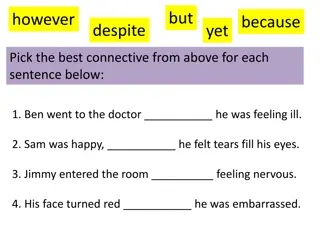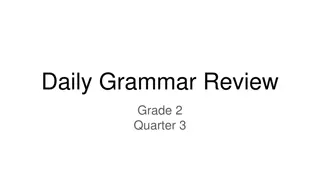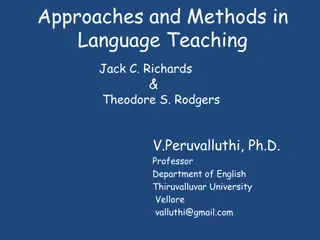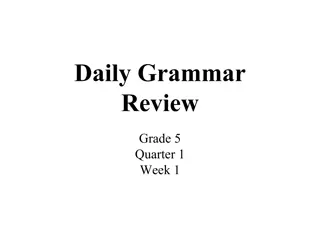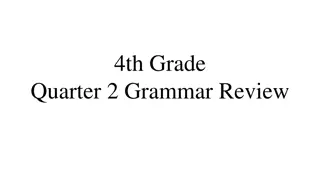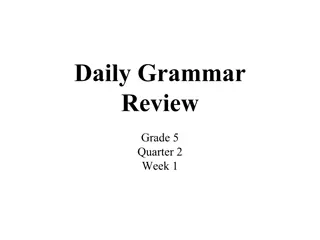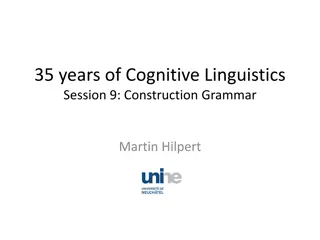Grammar
Explore the fundamentals of English grammar, including sentence structures, tenses, and examples. Learn how to form simple present and past tenses, and understand when to use them in different contexts.
Download Presentation

Please find below an Image/Link to download the presentation.
The content on the website is provided AS IS for your information and personal use only. It may not be sold, licensed, or shared on other websites without obtaining consent from the author.If you encounter any issues during the download, it is possible that the publisher has removed the file from their server.
You are allowed to download the files provided on this website for personal or commercial use, subject to the condition that they are used lawfully. All files are the property of their respective owners.
The content on the website is provided AS IS for your information and personal use only. It may not be sold, licensed, or shared on other websites without obtaining consent from the author.
E N D
Presentation Transcript
Grammar Grammar
Sentences can be in three different modes: 1. Statement ( Affirmative ) - John is here. 2. Question ( Interrogative ) - Is John here? 3. Negative - - John is not here.
TYPICAL ENGLISH DECLARATIVE SENTNCE STRUCTURE Subject + Verb + (object) (adverb of : Time or Place or Manner) Sentences with verb (be) like: Suzan is a doctor \ Tom was here \ The meetings are on Sunday Sentences with action verbs like: John is doing his homework now. She arrived early for the meeting.
Tenses in English Simple Present Tense How do we make the simple present tense ? subject +main verb e.g. I do - he does. e.g. I sing she sings In negatives or questions auxiliary verb (do) or (does) are used.
Simple Present Tense is used: When you are referring to habitual actions-- actions that you always or never do When you are making general statements of fact
Examples (habit) He always comes late to class. (unchanging truth) The sun rises in the east.
Simple Past Tense How do we make the Simple Past Tense? To make the simple past tense, we use: Past form only : I played football / She left
The Simple Past Tense is Used: When an activity or situation began and ended at a particular time in the past--in other words, when an activity or situation is completed in the past The auxiliary of simple past is (Did) As in : They did not attend the meeting.
Examples (Completed action in the past) He came late to class yesterday. (Completed action in the past) We arrived three weeks ago.
Indicators Last night, week, year, month, Saturday, semester, etc. Yesterday ago
Form (regular) (irregular) I studied/liked I went\became You studied You went S/he/it studied S/he/it went We studied We went They studied They went
The Present Progressive Tense is Used: When an activity is in progress now at the moment of speaking When an activity began before now and continues into the future without stopping.
Examples I m explaining something to the class right now. He s cutting the grass at the moment. She is washing the dishes now.
Indicators Right now, at this moment Still This year, week, month, etc. As we speak
Form I am studying I'm studying You are studying You're studying S/he/it is studying S/he/it's studying We are studying We're studying They are studying They're studying
Future Tense The Future Tense is Used: To indicate that an activity or event will take place at a time in the future. predictions about the future (you think that something will happen)
examples When I m retired, I m going to travel. Next week, we will work on punctuation. He is going to get his car fixed tomorrow.
Form 1 I will stay I'll stay You will stay You'll stay S/he/it will stay S/he/it'll stay We will stay We'll stay They will stay They'll stay
Form 2 I am going to stay I'm going to stay You are going to stay You're going to stay S/he/it is going to stay S/he/it's going to stay We are going to stay We're going to stay They are going to stay They're going to stay
Simple sentence A simple sentence contains a subject and verb. It expresses a single complete thought. A simple sentence is a single independent clause.
Sample Simple Sentences peter went to the store. The music is too loud for my ears. Sarah and peter are going swimming. The pizza smells delicious.
Compound Sentences A compound sentence contains two independent clauses. Conjunctions (for, and, nor, but, or, and yet, so) join these independent clauses. The conjunction can impact the meaning of the sentence.
Sample Compound Sentences My husband was working, so I went shopping . I like chocolate ice cream but don't have it very often . They wanted to go to Italy, for they wanted to see Venice . I am on a diet yet still want a cookie . She is a good administrator, and everybody knows that.
Complex Sentences A complex sentence is an independent clause joined by one or more dependent clauses. A subordinating conjunction begins the dependent clauses. A dependent clause that begins a sentence must be followed by comma. A dependent clause has a subject and a verb, but it does not make sense on its own.
Subordinating Conjunctions After how Although if As in as much in order that When At least Whenever now that whereas wherever as though While because so that Before even if even though though Until Unless as if as long as as much as soon Since That
Sample Complex Sentences Everybody knows that she is a good administrator . I am glad that you are joining our company.
